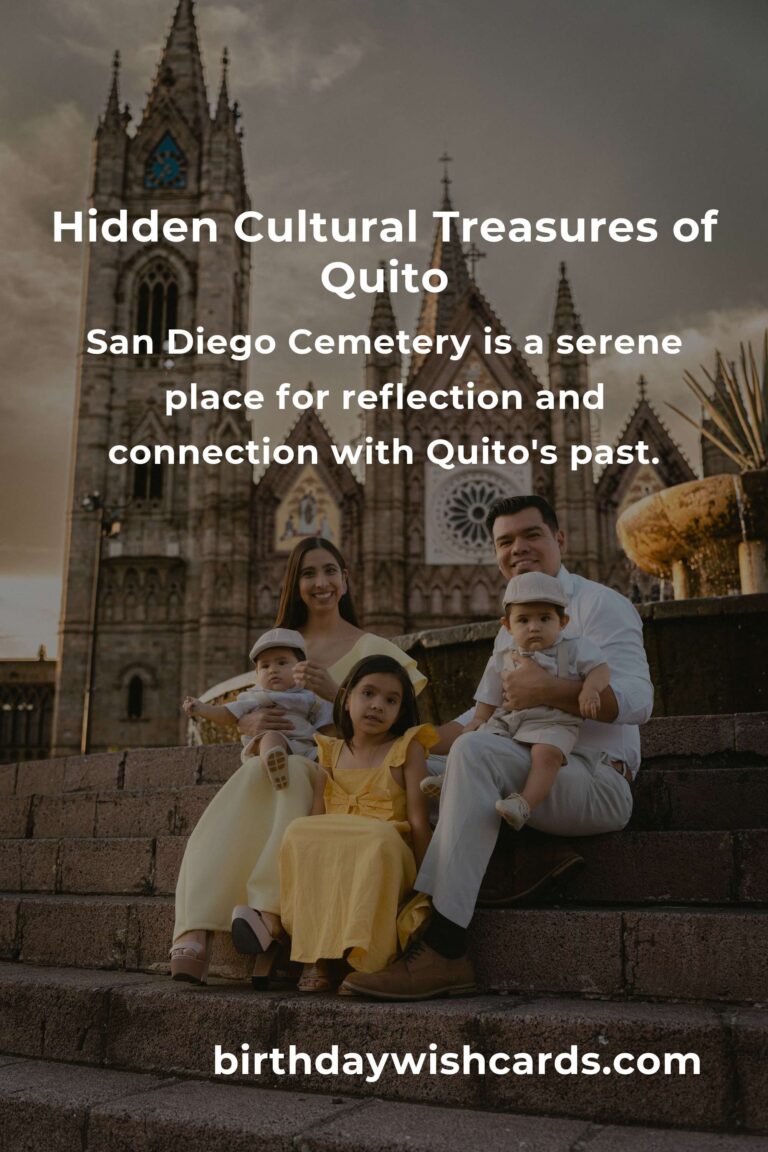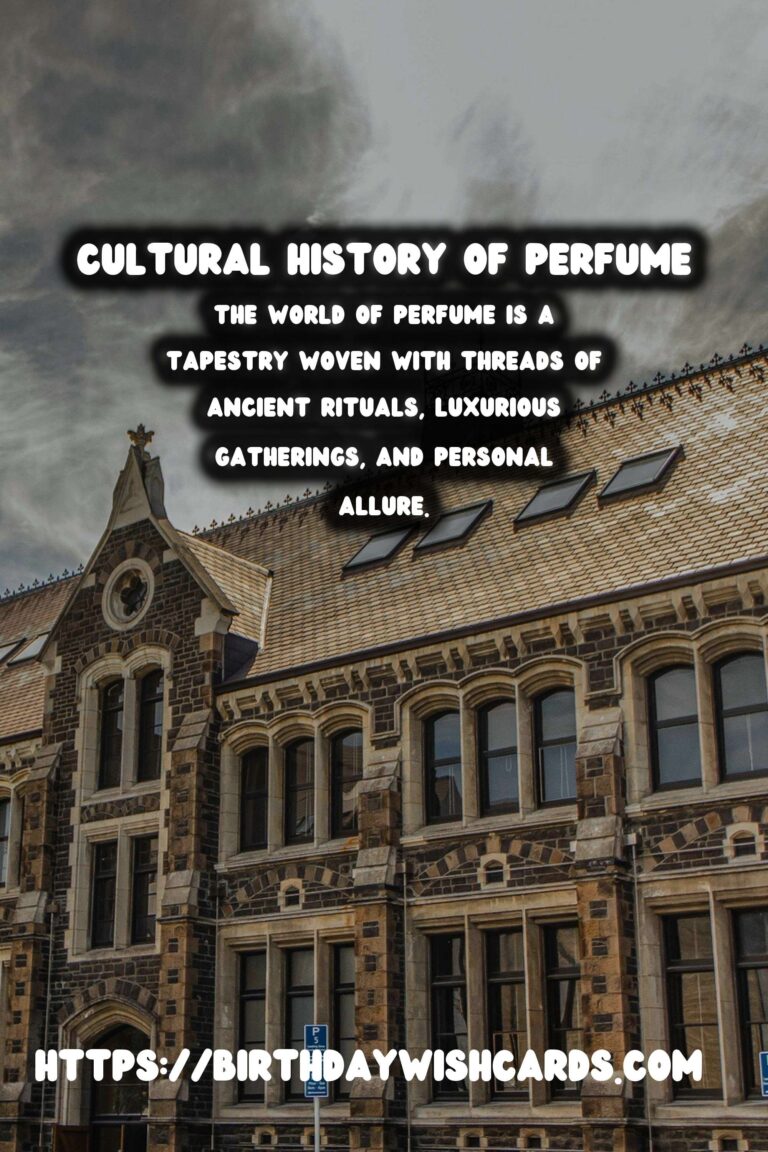
The world of perfume is a tapestry woven with threads of ancient rituals, luxurious gatherings, and personal allure. Perfume has been an integral part of human culture for thousands of years, carrying with it a sense of mystery and splendor that continues to enchant us today.
The Origins of Perfume
The word ‘perfume’ originates from the Latin phrase ‘per fumum’, meaning ‘through smoke’. This etymology hints at the very beginnings of scented mixtures when it was common to burn incense in religious ceremonies across the ancient world.
Perfume’s roots stretch as far back as ancient Mesopotamia. Historical records suggest that the earliest perfumers were chemists as well as magicians, brewing fragrant potions for gods and humans alike.
An Egyptian Legacy
One of the most notable ancient cultures closely associated with the development of perfumery is Egypt. Perfume was not just a product; it was a symbol of divine connection and status.
Pharaohs were often buried with copious amounts of fragrances, reserved for their use in the afterlife. The famous queen Cleopatra is said to have had her own secret fragrance recipes, demonstrating that perfume was also a personal expression of identity even then.
Perfume in Greek and Roman Times
As trade routes expanded, so did the reach and influence of perfumes. In Greek and Roman societies, perfumes were abundantly used and became symbols of luxury and opulence. Both societies utilized fragrances in religious rites, as well as in beauty regimens.
The Middle Ages and Arabic Influence
During the Middle Ages, the art of perfumery took significant strides, thanks to Arabic influence. The introduction of new techniques, such as distillation, allowed for a broader extraction of botanicals and flowers. This resulted in more complex and sophisticated perfumes.
The renowned philosopher and scientist Avicenna was pivotal in this evolution, having created the distillation process that is still a fundamental technique used in modern perfumery.
Renaissance and the Rise of European Perfumery
The Renaissance marked the dawn of the golden age for European perfumery. Perfumes became fashionable, embraced by nobles and the upper classes throughout Europe. With centers of production moving to Italy and then to France, Grasse emerged as a center of perfume excellence during this time.
The French were passionate adopters and innovators, laying the groundwork for what would become modern perfumery.
Modern Era and Cultural Significance
Today, perfume holds a fascinating place in society, bridging the gap between art and science. The modern era has made perfume accessible to the masses, transforming it into an everyday luxury.
The cultural significance of perfume still thrives, manifesting in diverse forms across different societies from spiritual practices to personal identity.
Conclusion
The journey of perfume from ancient smoke offerings to the modern blend of aromatic compounds highlights its enduring allure and significance. Whether it be an olfactory art form or cultural artifact, perfume’s history is an enchanting narrative that embodies human creativity and societal evolution.
The world of perfume is a tapestry woven with threads of ancient rituals, luxurious gatherings, and personal allure. The journey of perfume from ancient smoke offerings to the modern blend of aromatic compounds highlights its enduring allure and significance. 
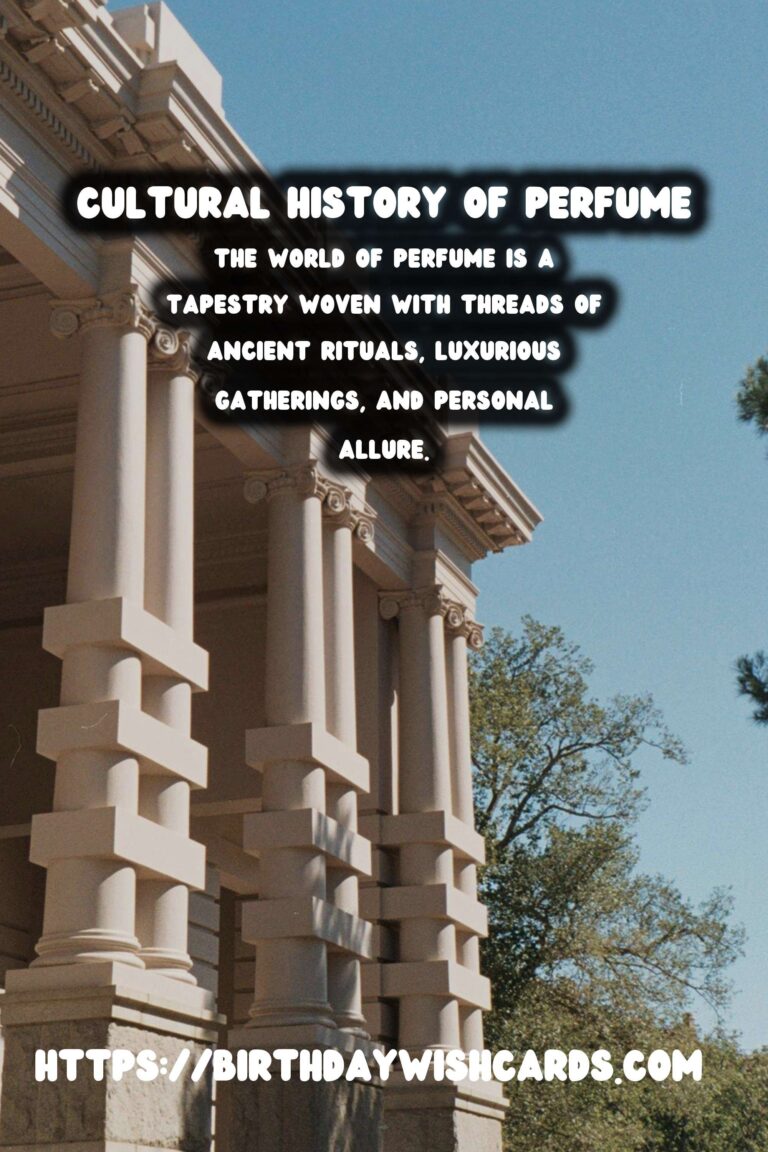
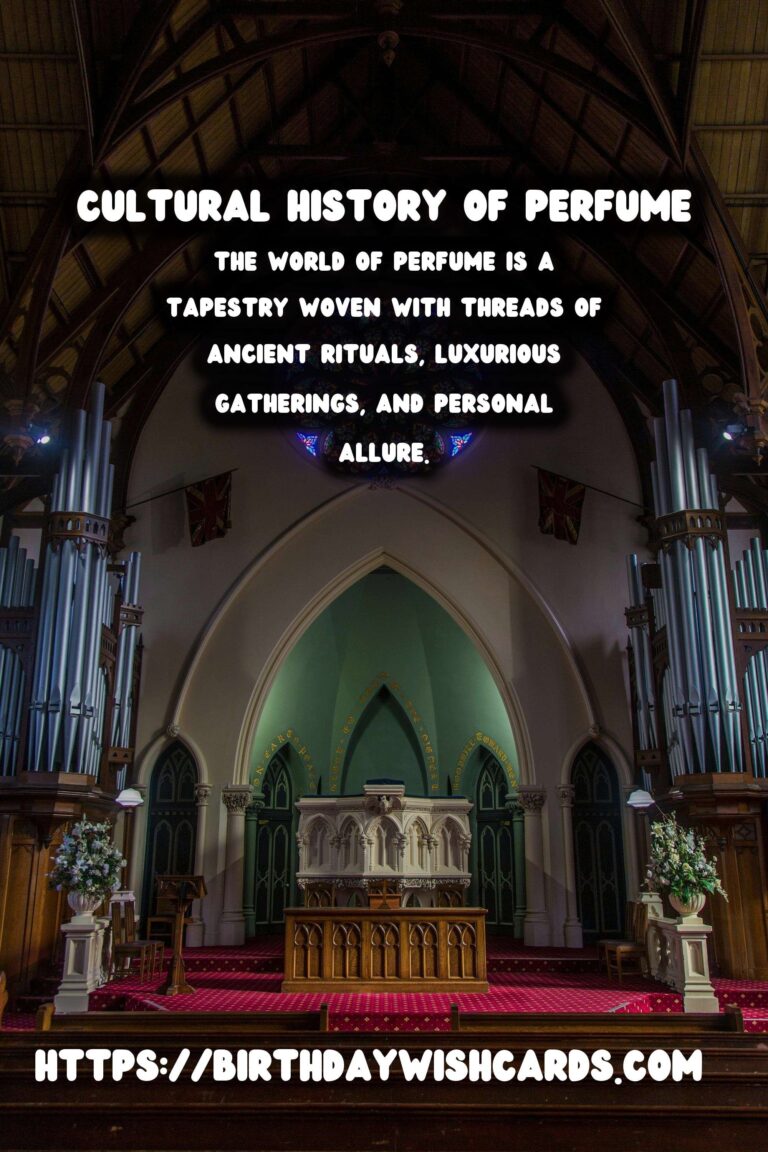
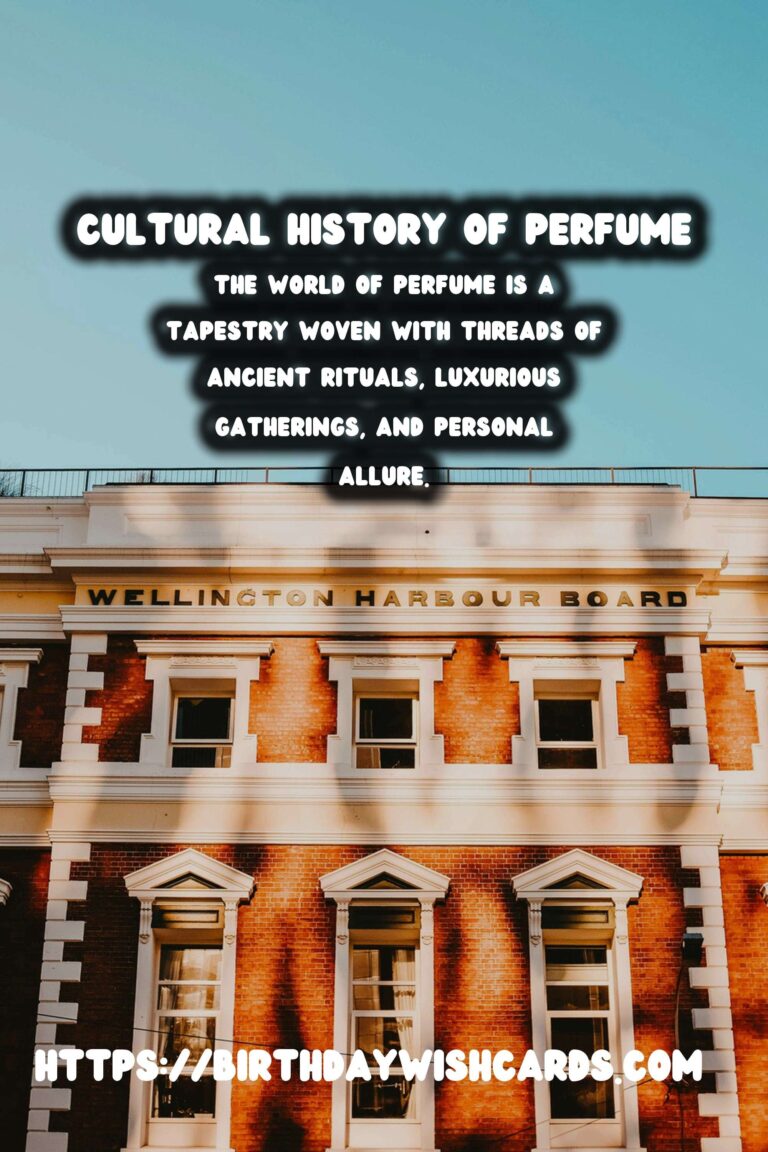
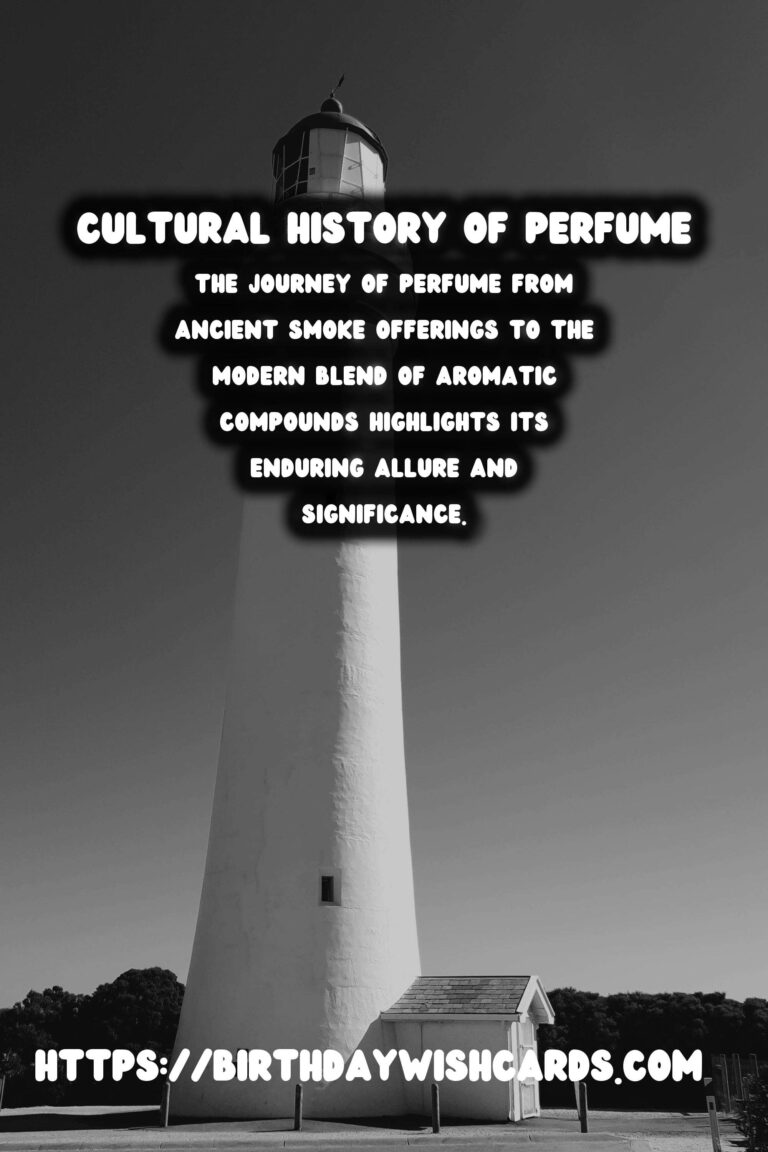
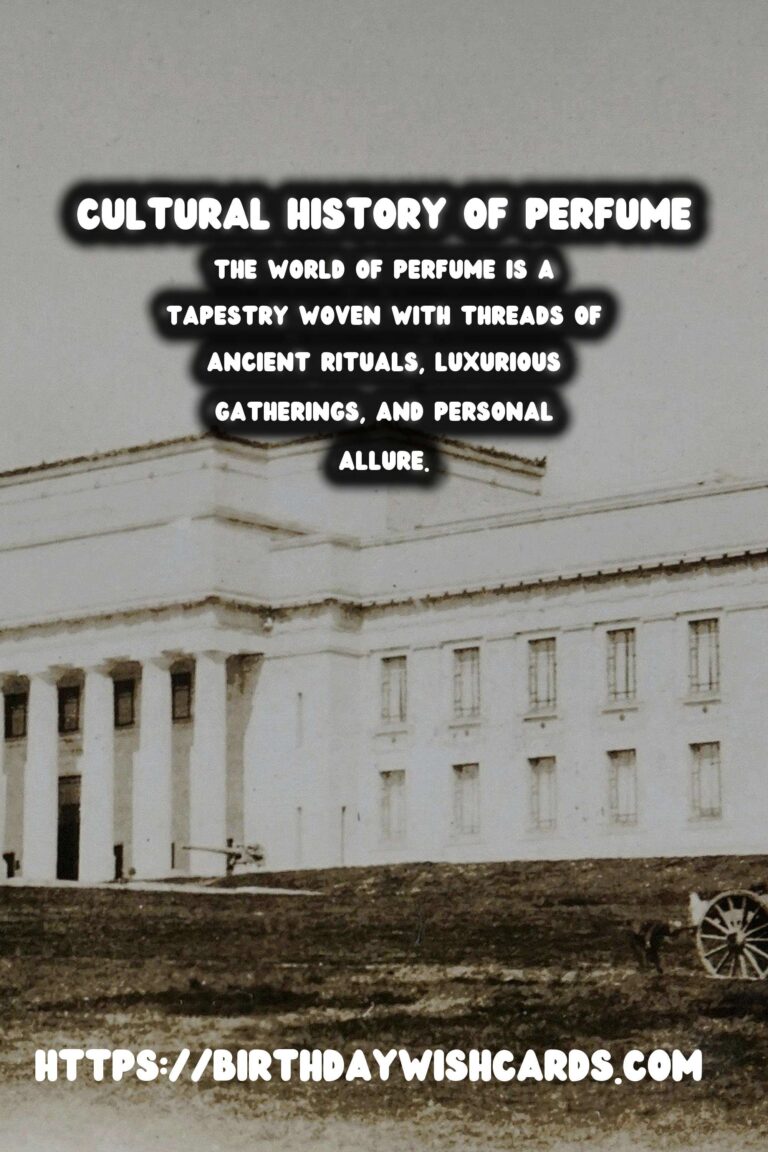
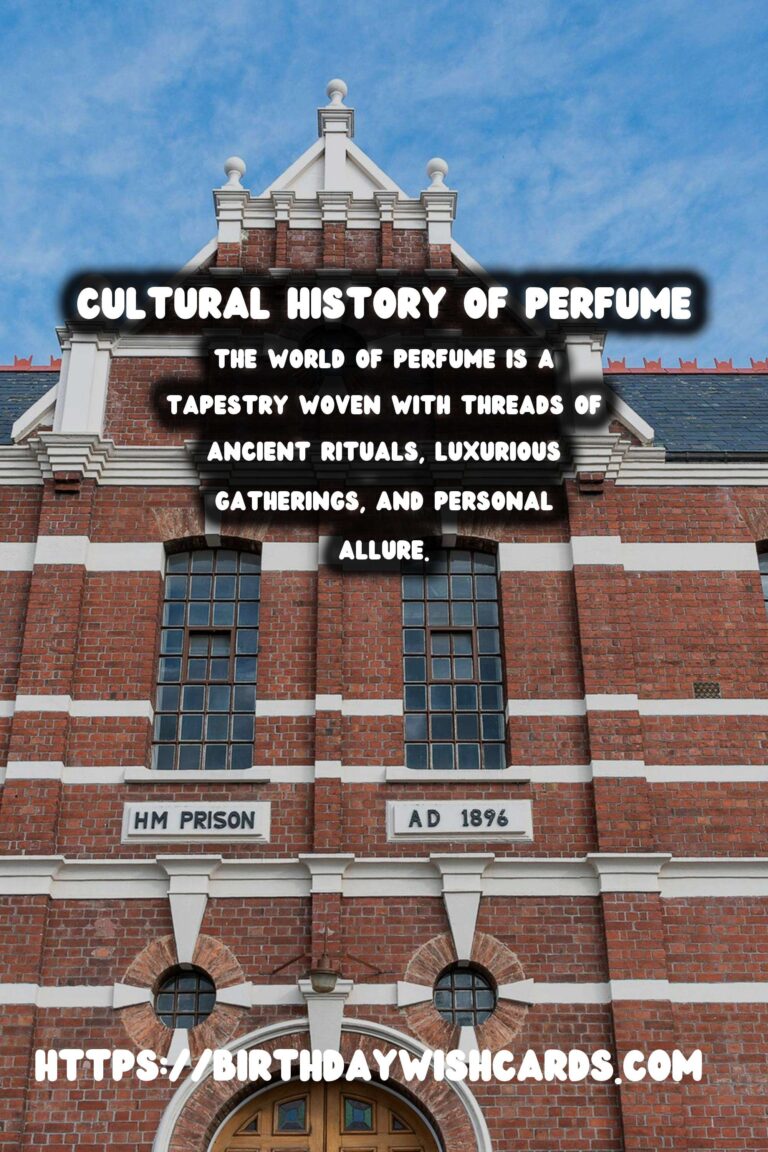
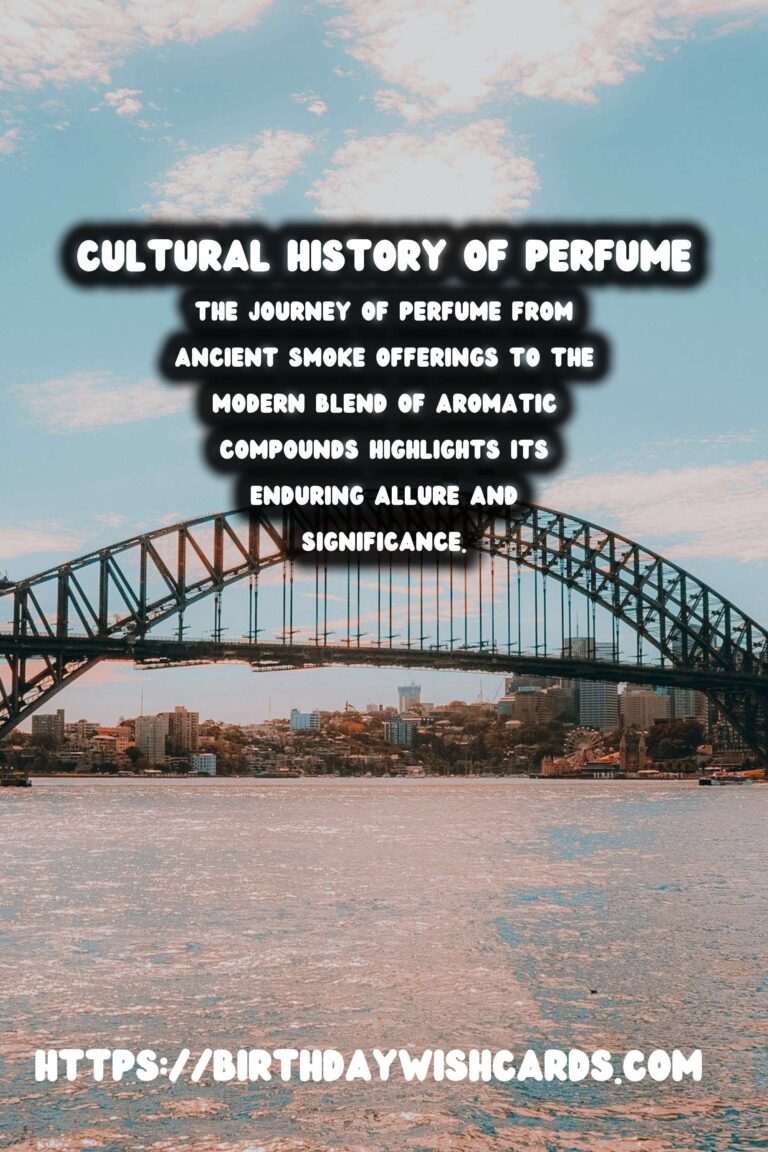
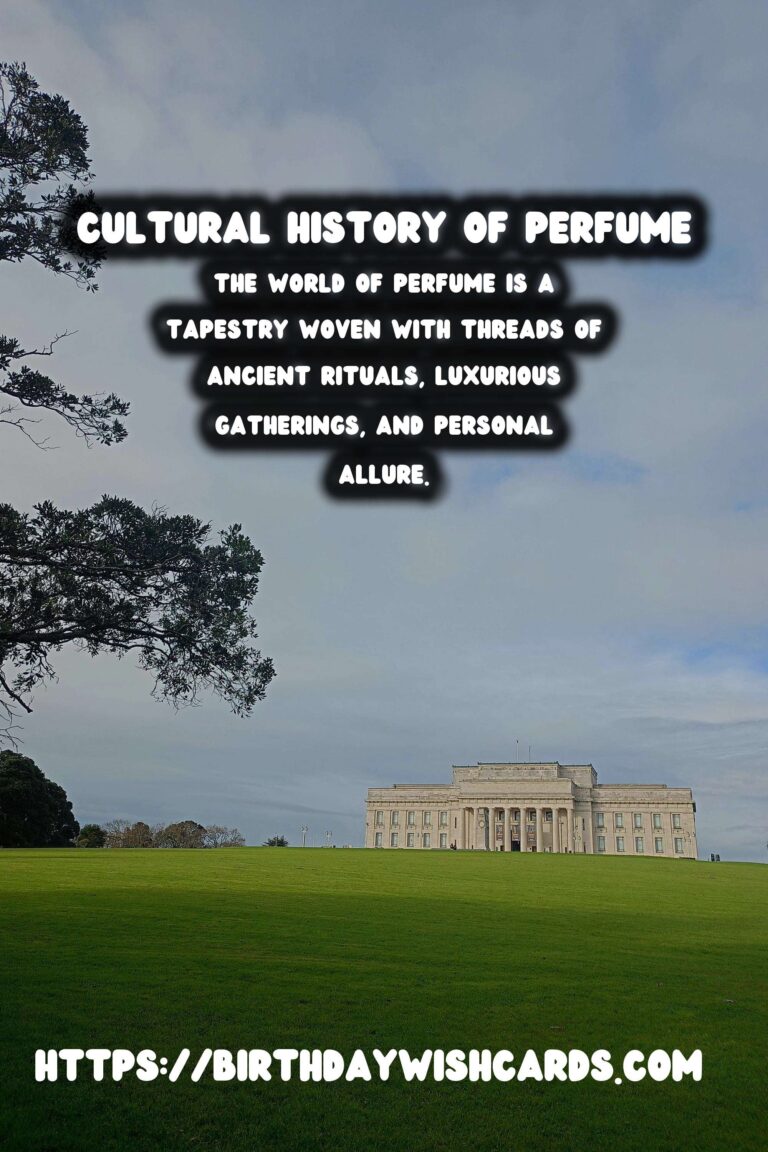
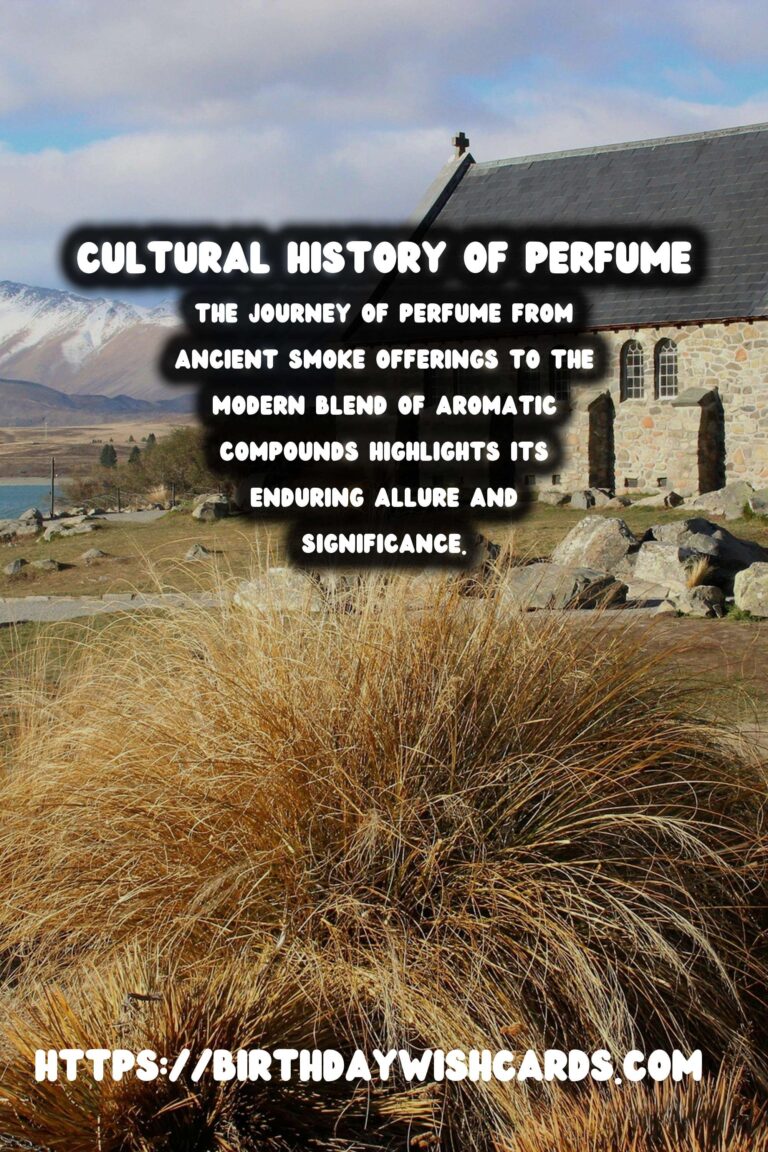
#PerfumeHistory #CulturalSignificance




